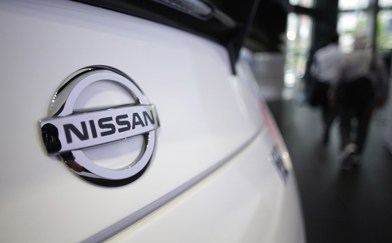If you're in the market for a used car, you'll want to ensure you make a wise and informed decision. Follow these essential tips for a successful used car purchase:
1. Identify your needs and the demands of your lifestyle
If you live in an apartment with no off-street parking, buying a large vehicle is likely to be out of the question due to the accessibility of parking.
If you’re looking for a car that’s more suited to occasional weekends away, for visiting the family or taking a road trip, perhaps you’d benefit from something sporty, maybe with a manual transmission, that makes the drive more enjoyable. Or maybe a car that has a comfortable ride, a smooth automatic transmission and the added benefit of cruise control may be a wiser choice.
2. Consider your finances
Establishing exactly what you can afford is crucial. Juggling your finances to realise you can just about afford your dream car isn’t enough and you need to bear in mind the maintenance and running costs that come with the car, as well as its initial price tag.
For example, European cars generally come with higher costs for maintenance and repairs and if you buy a high value car it’s more than likely to push your insurance premium upwards. Also consider the engine size, as the larger the engine, the less efficient it will be on fuel.
3. Research, research, research
Visiting dealerships and searching for private sellers on the internet will make you aware of what’s available in the current market within your price range. If you’re looking at a private sale, always look at other online advertisements for the same car to make sure you’re not being ripped off.
Always take a car for a decent test drive before you decide to buy it. Try to get on to the motorway during your test drive, because what may look good might not necessarily feel good to drive. And, the more you test drive, the more you’ll be aware of what you like and dislike.
4. Check the car and its history
Once you have selected a car you like the look of you should always request a vehicle history report to check for accidents, title issues, and maintenance records. These can reveal a lot about the car's past and are available from a number of reputable outlets, including the AA, and cost around $20.
Before finalising any purchase, have a trusted mechanic inspect the vehicle. They can identify hidden issues that may not be apparent to the average buyer. You should also check for liens, outstanding loans, or any other issues that might affect your ownership, as well as checking the NZTA’s recall database to ensure the car you're considering isn't subject to any outstanding recalls.
5. Be prepared to negotiate
Research the car's value and use this information to your advantage. Don't be afraid to walk away if the seller isn't willing to come down to a reasonable price.
Before signing any documents, carefully review the terms of sale. Make sure you understand the warranty, return policy, and any additional fees if its from a dealer.
6. Don’t rush it
It is important that you don’t let the excitement of buying a new car cloud your judgement or influence you into making rushed decisions. A new car isn’t a cheap purchase and you’ll reap the rewards of investing the necessary time and research upfront. Otherwise you could be scouring the market for a new car again sooner than you think.
7. Trust your instincts
If something doesn't feel right about the deal or the car, trust your instincts. There are plenty of used cars on the market, and it's better to pass on one that doesn't feel right than to regret your purchase later.
Remember that buying a used car can be a smart financial choice, but it's essential to do your homework and make an informed decision to ensure you get a reliable vehicle that meets your needs.




